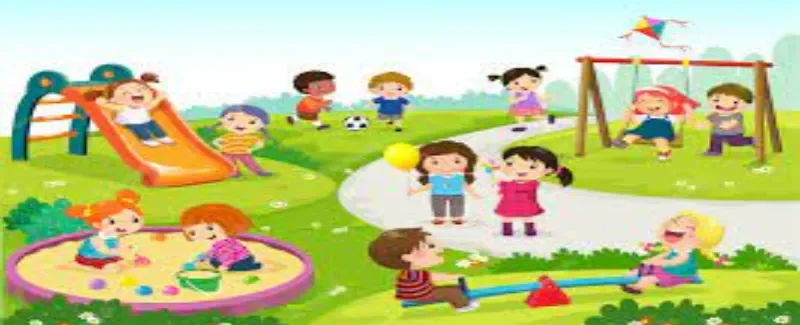Toddler Growth And Development

Posted Date: June 8th, 2023
Toddlers typically defined as children between the ages of 1 and 3 years old experience rapid growth and development in a relatively short period of time. This period of development is characterized by significant changes in physical, cognitive and social-emotional domains.
Physical Development:
Physical development during the toddler years is marked by rapid growth and increased motor skills. Toddlers gain an average of 3-5 inches in height and 4-6 pounds in weight per year during this period. They develop gross motor skills such as walking, running, climbing and jumping. They develop fine motor skills such as using utensils, drawing and manipulating small objects.
Physical development is an important aspect of toddler growth and development. During the toddler years, children experience rapid physical growth and acquire new motor skills.
1. Growth: Toddlers grow at a rapid rate during this period. On average they grow 3 to 5 inches in height and gain 4 to 6 pounds in weight per year.
2. Motor Skills: Toddlers develop both gross motor skills and fine motor skills during this period. Gross motor skills include walking, running, jumping, climbing and throwing. Fine motor skills include using utensils, drawing and manipulating small objects.
3. Coordination: As toddlers develop their motor skills, they also learn to coordinate their movements. They become more agile and can perform more complex movements such as jumping and skipping.
4. Sensory Development: Toddlers continue to refine their senses during this period. They become better at distinguishing between different colors and shapes and they can recognize familiar objects and people from a distance. They also develop depth perception and a sense of spatial awareness.
5. Health: Physical health is important during the toddler years. Toddlers need a balanced and nutritious diet, adequate sleep and regular exercise to support healthy growth and development.
They should also ensure that toddlers receive regular medical check ups and vaccinations to maintain good health.
In terms of sensory development, toddlers continue to refine their senses, particularly their vision and hearing. They are able to distinguish between different colors and shapes and can recognize familiar objects and people from a distance. They also begin to develop depth perception and a sense of spatial awareness.
Cognitive Development:
Cognitive development during the toddler years is marked by significant advances in language, memory and problem-solving skills. Toddlers typically begin to speak their first words around 12 months of age and by 24 months, they are able to use simple sentences and express themselves more clearly.
During this period, toddlers are also able to engage in pretend play and symbolic thinking, which allows them to imagine objects and events that are not physically present.
Cognitive development refers to the growth and change in a toddler’s ability to think, understand, reason, remember and use language. Here are some key aspects of cognitive development during the toddler years:
1. Language Development: Toddlers develop rapidly in their language skills during this period. They typically start with babbling and simple sounds around 6-10 months of age and by the age of 2, they can usually speak in simple sentences and understand more complex language.
2. Memory Development: Toddlers develop memory skills during this period, which allows them to recall information and experiences. They can remember things that have happened to them people they have met and places they have been.
3. Problem-Solving Skills: Toddlers begin to develop problem-solving skills during this period. They can recognize patterns, understand cause and effect and begin to use trial-and-error to solve problems.
4. Imagination And Creativity: Toddlers start to use their imagination during this period and become more creative in their play. They enjoy pretend play, using their toys to represent real-life situations and characters.
5. Cognitive Flexibility: Toddlers become more flexible in their thinking during this period. They can shift their attention from one task to another and begin to understand that objects can have more than one function or use.
6. Concept Development: Toddlers develop an understanding of concepts during this period. They learn to recognize shapes, colors and numbers and begin to understand the concepts of time, space and size.
Parents and caregivers can support cognitive development by providing a stimulating environment that encourages exploration and learning. They can talk to toddlers often, read to them regularly and provide plenty of opportunities for play and creativity. Simple games and puzzles can also help to develop problem-solving skills and cognitive flexibility.
Social-Emotional Development:
Social emotional development during the toddler years is marked by increased independence, self awareness and the development of social skills. Toddlers become increasingly aware of themselves as individuals and begin to assert their independence by saying “no” and engaging in behaviors such as temper tantrums.
They begin to understand social rules and expectations, such as taking turns and sharing and they begin to develop friendships and social connections with other children.
Social emotional development refers to a toddler’s ability to understand and regulate their emotions form relationships with others and develop a sense of self. Here are some key aspects of social emotional development during the toddler years:
1. Emotional Development: Toddlers experience a wide range of emotions during this period, including joy, anger, frustration and fear. They start to develop the ability to express their emotions verbally and non verbally and learn to regulate their emotions through self soothing strategies.
2. Attachment And Bonding: Toddlers form attachment bonds with their caregivers and other family members during this period. These bonds provide a sense of security and comfort and help toddlers develop a positive sense of self.
3. Empathy And Social Skills: Toddlers begin to develop empathy and social skills during this period. They learn to understand the feelings and needs of others and start to interact with their peers. They begin to engage in cooperative play, taking turns and sharing toys.
4. Self-Awareness: Toddlers develop a sense of self-awareness during this period. They recognize themselves in mirrors and photographs and start to use personal pronouns such as “me” and “mine”. They also begin to assert their independence and make choices about what they want to do.
5. Gender Identity: Toddlers start to develop an understanding of gender during this period. They begin to recognize differences between boys and girls and may start to show preferences for certain gender-typical toys or activities.
6. Moral Development: Toddlers start to develop a sense of right and wrong during this period. They begin to understand rules and limits and start to experience guilt and shame when they break rules or hurt others.
Parents and caregivers play a critical role in supporting social-emotional development during the toddler years. They can provide a safe and nurturing environment, offer plenty of affection and positive reinforcement and model appropriate social and emotional behaviors. They can also provide opportunities for socialization, such as playdates or toddler groups and help toddlers develop their problem-solving and communication skills.
Parenting Tips:
Parents and caregivers can support toddler growth and development in a variety of ways. Here are some parenting tips to help promote healthy growth and development during this period:
1. Provide A Safe And Stimulating Environment: Toddlers need a safe and secure environment in which to explore and learn. Provide plenty of opportunities for physical activity and exploration and make sure that the environment is child-proofed to prevent accidents.
2. Foster Language Development: Talk to your toddler often and encourage them to communicate with you. Read to them regularly and provide plenty of opportunities for them to practice their language skills.
3. Encourage Socialization: Provide opportunities for your toddler to interact with other children and adults. Join a parent-child playgroup, take your child to the park, or enroll them in a toddler program.
4. Provide Age-Appropriate Toys And Activities: Choose toys and activities that are appropriate for your toddler’s age and developmental level. Provide plenty of opportunities for sensory play such as playing with playdough, water, or sand.
5. Establish Routines And Boundaries: Toddlers thrive on routine and consistency so establish regular routines for meals, naps and bedtime. Set clear boundaries and expectations and be consistent in enforcing them.
Supportive and engaging environment for your toddler’s growth and development:
1. Use Everyday Experiences As Learning Opportunities: Everyday experiences, such as going to the grocery store, can provide valuable learning opportunities for toddlers. Point out items in the store and encourage your toddler to identify them. This type of activity helps with their language and cognitive development.
2. Encourage Physical Activity: Physical activity is important for a toddler’s overall health and well-being. Encourage your toddler to engage in physical activities such as running, jumping and climbing. This type of activity promotes their motor skills and physical development.
3. Provide Nutritious Meals And Snacks: A healthy diet is essential for a toddler’s growth and development. Provide nutritious meals and snacks that include a variety of fruits, vegetables whole grains and protein. This type of diet promotes their physical and cognitive development.
4. Use Positive Discipline Techniques: Toddlers are still learning appropriate behavior and may engage in challenging behaviors such as tantrums or hitting. Use positive discipline techniques such as redirection, positive reinforcement and modeling appropriate behavior. Avoid physical punishment or shaming, as this can negatively affect a toddler’s emotional development.
5. Maintain A Safe Environment: Toddlers are curious and may engage in unsafe behavior such as climbing on furniture or touching hot objects. Maintain a safe environment by childproofing your home and supervising your toddler at all times.
By following these tips and strategies, you can provide a supportive and engaging environment for your toddler’s growth and development. Remember to be patient, flexible and understanding and to provide plenty of love and support along the way.
Conclusion
In conclusion toddler growth and development is a period of rapid change and progress in physical, cognitive and social-emotional domains. Parents and caregivers can support healthy growth and development by providing a safe and stimulating environment, fostering language development, encouraging socialization, providing age appropriate toys and activities and establishing routines and boundaries.
Related Posts
Dr. Emily Carter is a seasoned health writer and wellness advocate at Healths News Today. With over a decade of experience in the healthcare industry, she specializes in translating complex medical information into easy-to-understand content that empowers readers to make informed decisions about their health.







